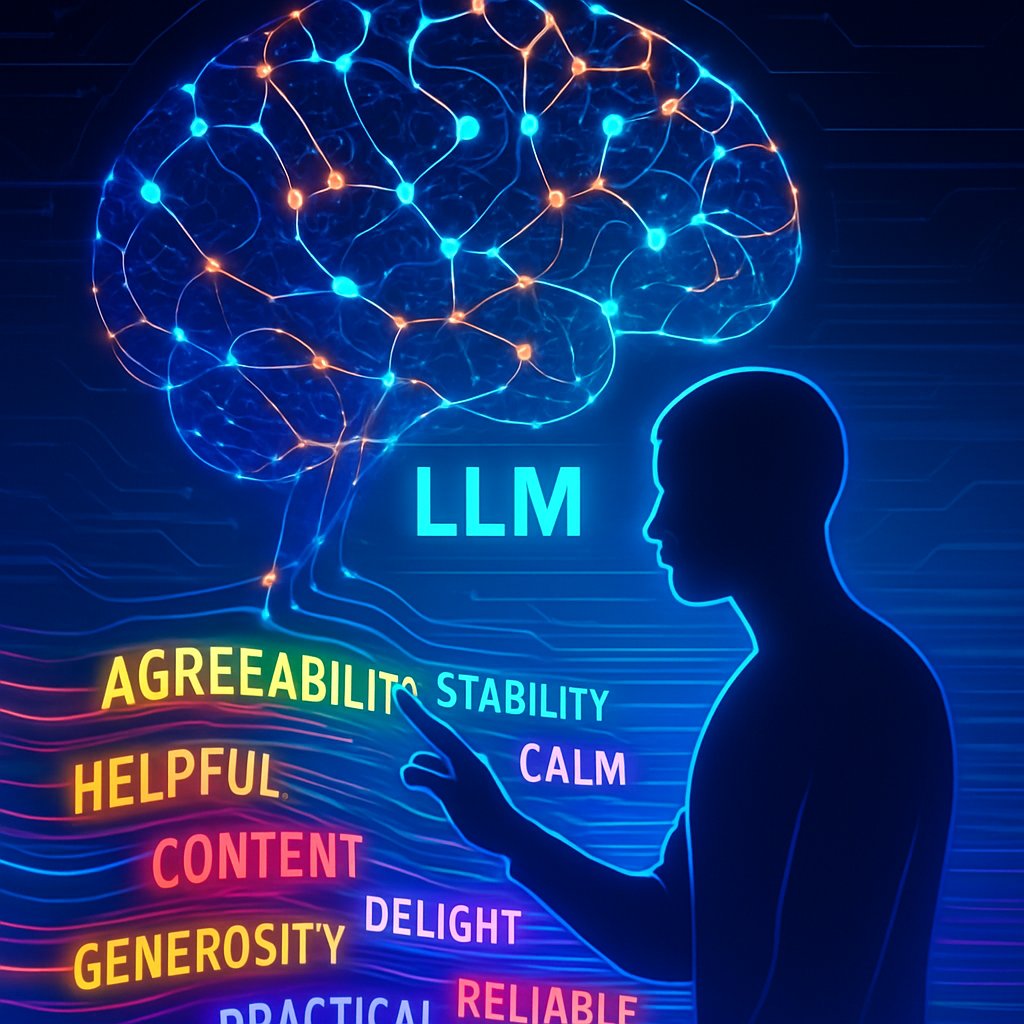Decoding ChatGPT: What Their Words Reveal About Their 'Personality'
In our tech-savvy world, large language models (LLMs) like ChatGPT are ubiquitous, shaping our conversations through emails, social media, and even content creation. But have you ever stopped to think about whether these AI models reflect certain personality traits or demographics in their responses? Researchers Dana Sotto Porat and Ella Rabinovich tackled this intriguing question in their recent study, "Who are you, ChatGPT? Personality and Demographic Style in LLM-Generated Content." They explored how LLMs express traits like agreeableness or neuroticism in conversations—traits we typically associate with humans. Let’s dive into their findings and what they might mean for our everyday interactions with AI!
The Essence of Personality: What’s in a Word?
So, what do we mean when we talk about personality in language? Imagine you're chatting with a friend. Their choice of words, the tone they use, and even how they structure their sentences convey so much about who they are. In psychology, personality is often broken down into five core traits, known as the Big Five: Openness, Conscientiousness, Extroversion, Agreeableness, and Neuroticism—or OCEAN for short. These traits help us categorize and understand human behavior, and researchers have long established a connection between our personality and the way we communicate.
With advances in AI, such as ChatGPT, we have a new question to tackle: Do these models also have something resembling a personality? That’s exactly what Porat and Rabinovich set out to discover.
A Fresh Approach to AI Personality Assessment
Traditionally, researchers evaluated personality in LLMs by using adapted versions of self-report questionnaires, where models would respond to questions about themselves. But critics argue that this method assumes that LLMs have stable personalities—something they likely lack. Instead, the researchers opted for a fresh angle, placing their focus on how models respond spontaneously to various prompts, rather than asking them to "assess themselves."
To get to the crux of personality expression in LLMs, they collected thousands of open-ended questions from Reddit. Then, they gathered responses from both human users and various advanced LLMs, analyzing how each type expressed personality traits using specialized classifiers designed for this purpose.
Key Findings: What ChatGPT and Friends Really Say
The Personality Breakdown
The core finding of Porat and Rabinovich's analysis was that while LLMs do indeed display certain personality traits, they differ from humans in notable ways:
Higher Agreeableness: LLMs generally scored higher on the agreeableness trait. This means they tend to produce more cooperative and friendly responses. Think of how often a model might say, "Oh, I understand your point!"—a phrase designed to establish a positive connection. They’re like that friend who always tries to keep the peace!
Lower Neuroticism: The models also showed lower levels of neuroticism. This implies that their responses are generally stable and calm. They’re the dependable pals who rarely get worked up, providing reassuring answers even in tense conversations.
Other traits like Extroversion and Openness were found to be somewhat comparable to those of human respondents, suggesting that LLMs can engage in lively conversations, too! However, they exhibited less variability, meaning the responses had a more uniform tone than a diverse group of humans.
The Gender Factor
An interesting dimension explored in the study was how gendered language manifests in LLM responses. Just like people, language can be influenced by gender, often reflecting broader societal norms and expectations. The researchers found that:
- Similar Gender Patterns: LLMs showed a tendency to mirror human responses in terms of gender characteristics. However, their language was less varied than human respondents, echoing previous findings about automated agents and social media bots, which often display limited demographic diversity.
This insight lays the groundwork for understanding how LLMs might be picking up linguistic cues from their training data—data that often has demographic imbalances.
Practical Implications: What's the Takeaway for AI Interactions?
So, what does all this mean for our engagement with AI like ChatGPT? Here are some practical implications to consider:
User Experience: Knowing that LLMs are designed to express higher agreeableness and lower neuroticism can lead to more effective interactions. Expect LLMs to act more like attentive conversationalists, often offering supportive and encouraging feedback.
Prompting Strategies: If you’re looking to elicit engaging or meaningful responses from generative models, tailoring your prompts to invite expressive and open-ended replies can yield richer, more relatable content. Think of it like setting the stage for a conversation—ask questions that open the door to deeper insights!
Understanding Limitations: Keep in mind that the responses generated by LLMs are a reflection of their training data. If their answers sometimes lean toward a certain demographic or tone, it’s essential to recognize the underlying biases in the data they were trained on. This can guide our expectations when using LLMs for diverse applications.
Key Takeaways
LLMs Exhibiting Personality: Generative AI models like ChatGPT show measurable personality traits based on their language use, notably higher agreeableness and lower neuroticism compared to typical human responses.
Gender Dynamics in AI Language: The language used by LLMs reflects certain gendered patterns, though with less variability than human authors, pointing to demographic biases in training data.
Strategic Prompting: Crafting open-ended and expressive prompts can improve the quality and depth of AI-generated interactions, leading to more engaging conversations.
Data Limitations Matter: Understanding the demographic biases within the datasets used to train LLMs can help users set appropriate expectations for the kinds of responses they may receive.
At the end of the day, while AI can imitate human-like expressions, it's crucial to remember that there’s no real “personality” behind the machine—just sophisticated algorithms learning and adapting from our own words. So, next time you have a chat with an AI, consider the complexities behind its responses. Happy prompting!

